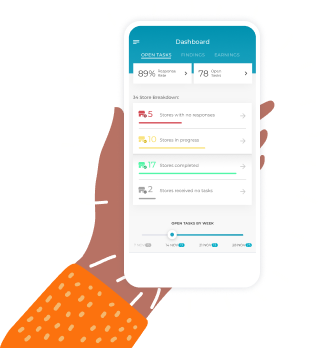Walmart has upped the ante for its big box and grocery store counterparts by obtaining a patent for long-anticipated robotic shopping carts. The robotic carts (created by Alert Innovation) are poised to transform operations for store teams and enhance the shopping experience for customers. The technology utilizes Roomba-like motorized transport units attached to the bottom of traditional shopping carts. And Walmart’s technology provides just a glimpse at how shopping cart technology might evolve over the next decade.
Improvements for Ops Management
Walmart’s carts will operate on a “central control circuit” that uses a wireless network, video cameras, and sensors to do its bidding. Irked by idle shopping carts obstructing your selling floor or crowding your parking lot? The system clocks each cart’s idle time and then uses image sensors to make sure the cart is empty and no longer in use. What’s more, idle carts will return themselves to docks, so forget about having to send a human employee to do so.
The bots are poised to do more for store ops than just clear inactive carts, according to Kate Taylor’s article for Business Insider. It seems that Walmart is considering applying the motorized transport units to more than shopping carts. Walmart’s patent allows for a wide range of uses, and the technology can potentially move shipping containers, retrieve and deliver stock, manage inventory, and dispose of trash. But, we’ll have to wait to see whether and how soon these functions come to fruition.
It’s worth noting that Walmart’s isn’t the only hand in the game. Five Elements Robotics garnered buzz when they introduced the DASH Robot Shopping Cart at the 2018 National Retail Federation annual convention and expo in New York City. Beyond the prospective benefits for customers (outlined in the next section), Five Elements highlights DASH’s ability to increase sales, expand customer base, reduce losses from theft, and provide real time inventory data and analytics.
DASH’s development is still underway. Still, the technology has some features that retailers can get excited about. Specifically, Five Elements is planning to use DASH to collect data on customer buying trends, thus helping buying and planning teams make informed, strategic decisions. It’s not clear, however, how the carts may provide more comprehensive data than the existing technology. Nonetheless, with proper floor set up, DASH might strategically lead customers through stores past featured displays to ultimately drive sales. DASH’s screen could provide targeted advertisements, reducing marketing costs for adopters.
Elevating the Experience for Shoppers
Robotic shopping cart technology isn’t just compelling for retails ops teams. The proposed models boast a deep commitment to improve the experience of brick-and-mortar shopping for customers, too.
In a recent interview with Yahoo Finance, Alert Innovation CEO John Lert described how the shopping cart was designed with the customer in mind. Explaining that customers see value in picking out fresh produce, Lert states that selecting packaged goods is a “chore” for customers, who become “unpaid warehouse workers filling their own orders.” To alleviate the chore for the customer and the associate, robotic shopping carts can pull items from back stock and deliver them to store associates to quickly fill online orders.
It will be interesting to see how else shopping cart bios can anticipate customer needs. Poised to compete with Alert Innovation’s model, the DASH shopping cart can transfer or create customers’ shopping lists, helping shoppers map out the most effective and direct route. If you’ve ever roamed grocery aisles in circles searching for a single, hard-to-find ingredient, that’s a feature you’ll appreciate. DASH also promises to utilize an automatic scanning feature, which means customers won’t waste time scanning items at the end or get frustrated when said items inevitably don’t scan. Finally, DASH will allow customers to pay via the cart’s smart screen, which may be a win for those who don’t want to interact with a sales associate.
The Jury is Still Out
The technology for robotic shopping carts, despite momentous backing and a good deal of industry excitement, remains a nascent revolution, whose success and full potential functionality researchers are yet to unlock. While it seems that Walmart will be the first major retailer to introduce robotic shopping carts to its customers, it remains to be seen whether the technology transforms the shopping experience as much as it improves operations for store teams. But competitive technology (like the DASH cart) might offer technology that’s especially appealing to customers.
If you’d like to know how we’re helping revolutionize retail with data, start here.



